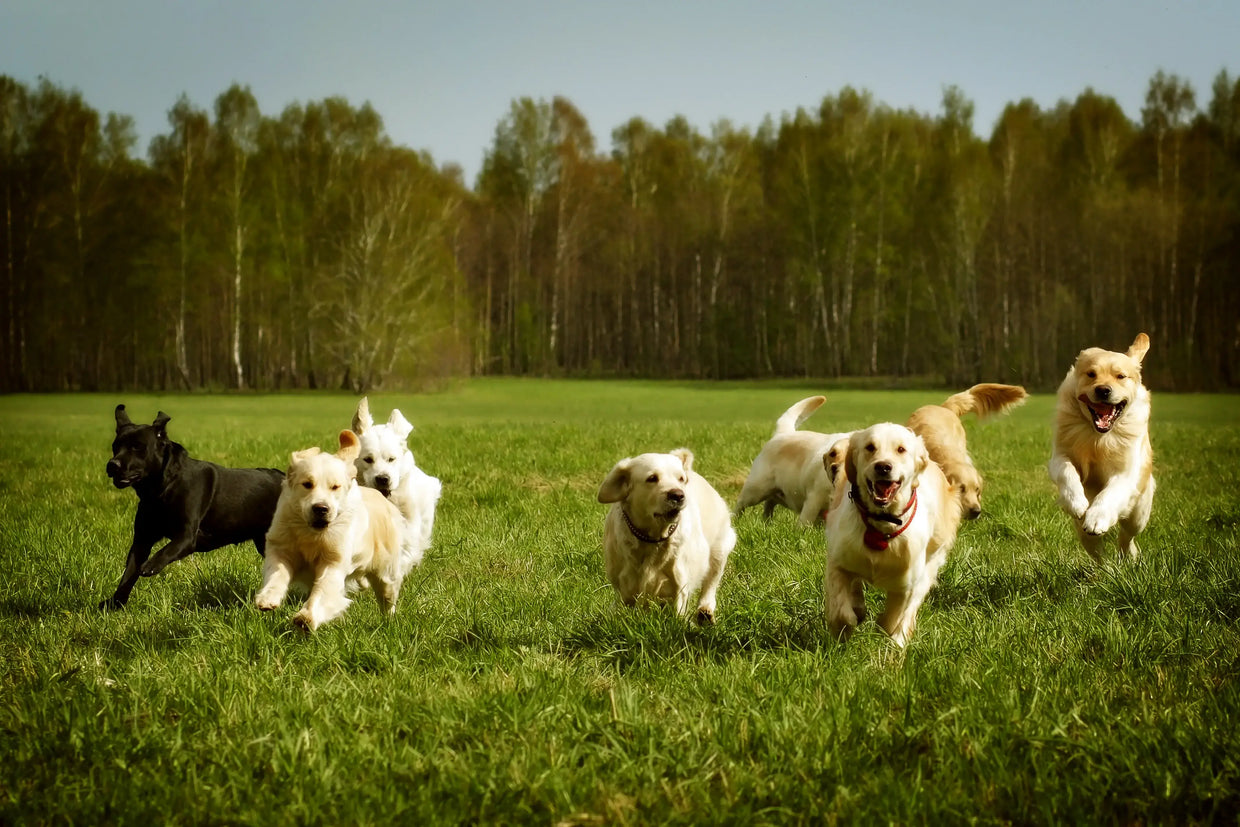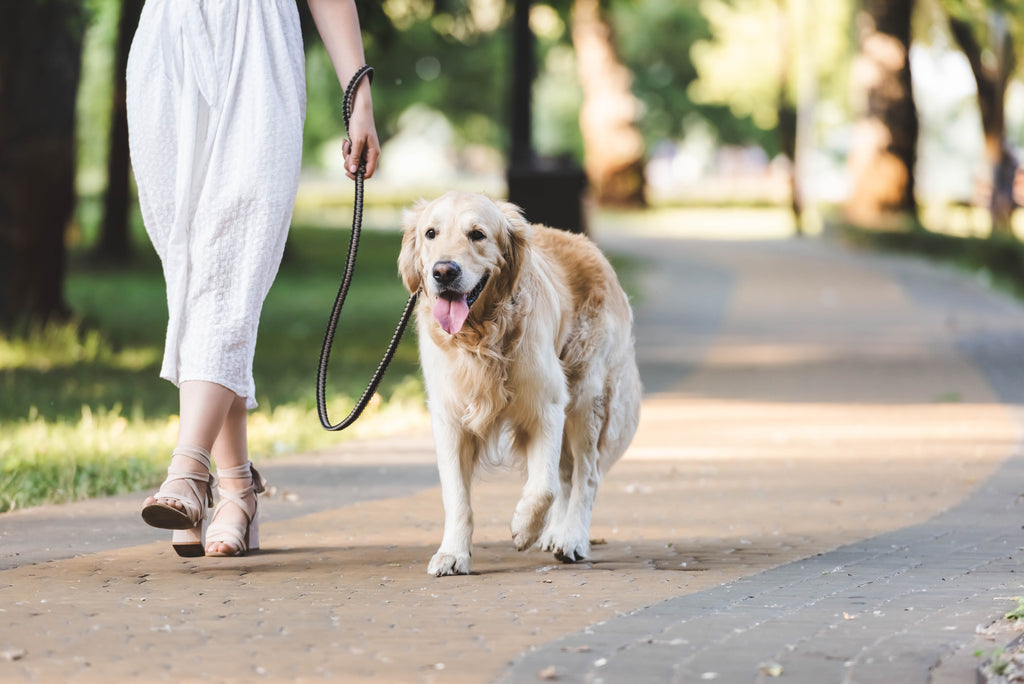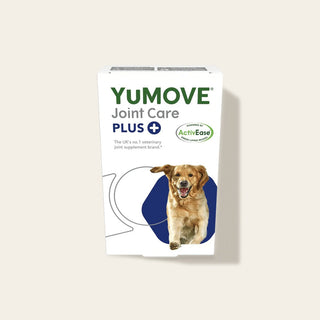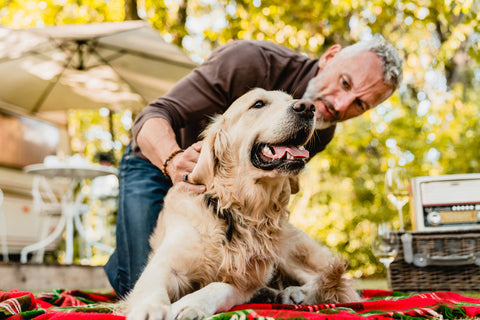

Which dog breeds are more at risk of joint stiffness?
At YuMOVE, we know your dog is more than just a dog. They’re a furry family member. And we know how devastating it can be when you notice your darling dog is experiencing joint stiffness.
It’s widely known that joint stiffness in dogs is more common in older canines. But did you also know that some breeds are more at risk due to their genetics and anatomy?
All pet parents should be on the lookout for the signs of joint stiffness, but you should keep a particularly close eye on your pup if they’re a certain breed. Let’s take a closer look…

Top tips for spotting joint stiffness in dogs
Stiffness can occur in any joint but is most commonly found in the shoulders, hips, elbows, and knees.
Here are some signs to look out for in your dog:
- Excessively licking joints
- Lagging behind on walks
- Slow to rise from rest
- Struggling to get into the car or onto the sofa
- Lethargy
- A generally low mood
- Sensitivity when being touched or stroked
-
Labradors

Labrador Retrievers often stay very playful throughout their lives, which is why they make great pets. But their higher activity levels, large size and genetics make this breed more susceptible to joint stiffness.
Labradors can also be prone to obesity. Extra weight intensifies the stress put on your dog’s joints and can accelerate the progression of joint stiffness.
Discover our range of labrador supplements.
-
Dachshunds

There is a greater risk of stiffness in Dachshunds due to their long shape and short legs. This pairing increases the likelihood of strain on knees, hips and the back – especially if your sausage dog has put on some pounds.
Even the trimmest of Dachshund’s short legs can be under strain, so we recommend you don’t let your Dachshund jump up as much as other dogs. Speak to your vet for the best advice on looking after your Dachshund’s mobility.
-
Spaniels – like Cocker, Cavalier King Charles and Springer

Here are a few breed-specific issues to look for in your Spaniel:
Spaniels are natural athletes (particularly Cocker Spaniels), and their joints can become overused, resulting in stiffness – especially in the hips. Find out how to spot the signs of joint stiffness in dogs.
-
German Shepherds

These large, agile, intelligent and muscular dogs are considered one of the best working breeds. But their size means they’re more likely to get stiff joints. Like many purebreds, German Shepherds are susceptible to joint stiffness.
Discover our range of labrador supplements.
-
Pugs

In general, Pugs aren’t known for being the healthiest breed of dogs. Their flat-faced structure can cause breathing problems and overheating. Plus, they’re prone to joint stiffness due to their short and stocky frame. When exercising your Pug, opt for gentle, low-impact walks and games, plenty of playtime and mentally stimulating toys.
-
Golden Retrievers

Like any purebred dog, Retrievers sometimes face genetically related health problems. What’s more, keeping your Retriever fit and active is crucial, as they tend to become overweight easily.
Most Golden Retrievers will thrive with two hours of exercise each day, including walks and lots of playtime and training. And they love a good game of fetch – it’s even in the name – but try to keep any games low-impact to support their joints.
-
Rottweilers

The main reason Rottweilers appear on this list is because of their incredible strength and muscular weight. Plus, Rottweilers are extremely active. All of this makes them more likely to suffer from joint stiffness.
-
St. Bernards

Unlike most breeds mentioned, these gentle giants don’t always like much exercise. But their humungous size lands them a spot on this list. Their heavy weight adds extra strain to their joints, so monitoring your St. Bernard as they grow older is important.
How to support your dog from puppyhood to old age
If you have any concerns about your dog’s joint health, please talk to your vet about how much exercise your pet needs to help maintain mobility.
Puppyhood
In the early days, playtime is non-stop, but it’s important to be proactive to help your puppy avoid joint stiffness. Avoid over-exercising and very rough exercise. Puppies never know when to stop, as they’re always having so much fun!
The teenage years
After your adorable puppy hits 12 months of age, you’ll be dealing with a troublesome teenager! Your dog is still growing at this stage, and their boisterous behaviour is a result of extra energy. Excessive or high-impact exercise can strain growing bones, muscles and joints.
Old age
Sadly, our dogs slow down as they grow up. Reach out to your vet if your pooch is sleeping more, slowing down during walkies, or struggling to climb the stairs.
Get 50% off your first two months of YuMOVE Joint Care when you subscribe today.



